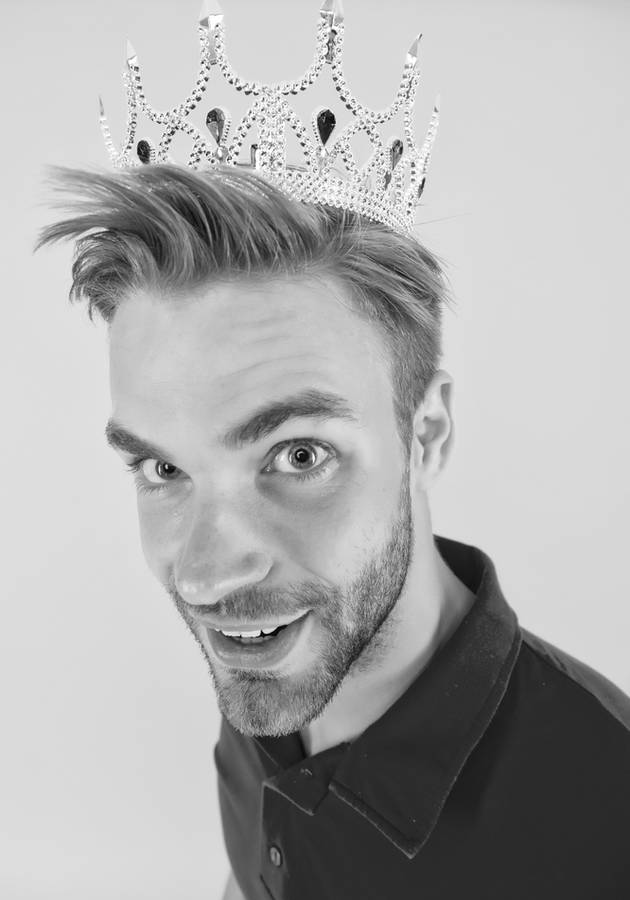We stop, at least once in our lives, to ask ourselves what the world is, who we are and how we live. We wonder what matters most, what is a good life or what kind of life is worthy of our humanity. However we articulate the question, it threatens (or promises) to reshape everything - our orientation toward the world and our place in it, as well as a driving impulse in our lives. ‘’Life Worth Living’’ is a piece about that Question - its form, nature and possible answers to it. So, get ready to discover what kind of life would be truly worth seeking!
What put Buddha’s and Simon’s life in question?
Before he became Buddha, Siddhartha Gautama enjoyed the privileges of royalty. He lived in a luxurious palace, ate quality and expensive food, wore fine clothes, and was preparing to inherit his father’s kingdom. He was married to a princess and they were expecting their first child. All in all, he enjoyed a good life. But, was this kind of life worth living? One day, he saw a feeble old man in the royal park. The next day, he came upon a sick man. A day after that, he saw a rotting corpse. Shaken by these images of suffering people, Siddhartha returned to the park again on the day his son was born. He met a wandering monk and got a strong urge to renounce his royalty. He realized he wanted to seek enlightenment and find ways to overcome suffering. That very night, he left his family without saying goodbye and went on a spiritual quest in search of answers. Several years after leaving home, he reached the truth he had been seeking through mediation - suffering comes from craving, so the human being with no craving will experience no suffering.
Just like Buddha, Simon lived an ordinary life up to some point - he had a stable trade, family, and community. However, the day came when he experienced an event that questioned the way he was living. Jesus, a new teacher from Nazareth, asked Simon to follow him - and he did for three years. He listened to Jesus's preachings, watched his miracles and tried to understand. Nevertheless, when the authorities arrested Jesus, Simon, now called Peter, denied knowing him. And all the years of learning and listening would have been lost if Peter hadn’t encountered his Lord risen from death on the third day. From then on, Peter dedicated his life to spreading the good news about Jesus and living as he instructed.
Four modes - four questions
What two stories from the previous section share are experiences that questioned the shape of their lives. ‘’What had been normal and assumed became questionable,’’ the authors comment. ‘’Something—maybe everything—had to change.’’ Not everyone can always come to the point where they question their existence and crave transformation. Although the events played a role in making Buddha and St. Peter change their existence course, the mode of being they were in at the time actually made them take up the challenge of responding to the Question. In other words, we wonder about what life is worth living only after we enter the mode of deep reflection.
The authors distinguish four different layers or modes of being: one is reflexive - ‘’a spontaneous, embodied state of activity,’’ and the authors call it ‘’autopilot.’’ The other three are reflective, and go by names: ‘’effectiveness,” “self-awareness,” and “self-transcendence.” Each layer has its corresponding question, and none of the layers is bad or independent of the others. Let’s begin with ‘’autopilot.’’
When we live on ‘’autopilot,’’ we are unaware of why we do what we do - we are simply guided by reflex and habit. As the authors note, ‘’Life here is lived out of the sort of knowledge that dwells in our muscles and our bones. The machinery of our lives—individually and collectively—just keeps churning and we do not think to ask how or why.’’
In the next layer, we step back at some point to reflect on our actions. Are they getting us where we want to go? As the name suggests, in this mode, we improve the effectiveness of our daily routines - we create new processes and practices and direct our energy in a different direction. In this layer, however, there is no concern about whether our goals are right - we only want effectiveness to get us where we want - wherever that is.
Once we experience the hollowness of effectiveness, self-awareness questions arise. What do we really want? What are we really after? Where are we really trying to go? In the self-awareness layer, we are not concerned about the most easily accomplished things but those we deep down desire.
Finally, once we get what we want, another question begins puzzling us - Was this worth pursuing? So, in the self-transcendence layer, you ask yourself about the validity of your vision. How could you know whether the life you’re after is really worth wanting?
Long, happy and healthy life
Do you remember the old slogan by Walgreens: “Walgreens—at the corner of happy and healthy?”. Many would say that a happy and healthy life is one worth living. And, of course, a long one. The experience of happiness is good - if it's long, that is even better. To summarize, we want a long life only if it is happy and healthy at the same time.
The vision of a long, happy and healthy life is championed by contemporary society - especially doctors, advertisers and psychologists. Just consult the latest wellness articles online or recent psychological studies, and you will find these three words in the definition of the meaning of life. If you think about it, it is understandable and logical - no one would want to live a short, unhealthy and unhappy life, right? Nevertheless, some people, like Buddha and St.Peter, saw that something else mattered more than life’s length, health and happiness. Take Martin Luther King as an example. He probably didn’t want a short life. Despite this, he decided to participate in fighting for civil rights for African American, which, as he was aware, would put him in danger. Lady Constance Lytton, on the other hand, went on hunger strike several times to help women in the United Kingdom win the right to vote, despite having a weak heart. For her, health was not as valuable as fighting for justice.
So, perhaps Walgreens vision is not the answer to the Question. This, by all means, does not mean that a short, sickly and sad life is one worth living. After all, none of the world’s great religions or philosophical traditions support that kind of vision. What they do suggest is that there are other things worth living for, even if they damage your health, shorten your lifespan and make you unhappy.
How does a good life feel?
It is a bit counterintuitive to ask how a good life feels. It just feels good. But, what does it mean to feel good? Well, we feel good when we experience pleasure, while pain brings us the opposite feeling. This explanation leads to utilitarianism, whose core idea is that “Good is pleasure or exemption from pain… Evil is pain or loss of pleasure.”
So, the basic utilitarian approach is simple - the good life is a life of pleasure with minimum pain. Even so, those who have seriously thought about the Question disagree. Maybe you have heard a story about a nun from Buddha’s times called Subha. One day, when she was on the way to the forest to study and meditate, a man with untoward intentions stopped her. He was infatuated with her, particularly her eyes. He offered her to come with him, saying he could give her the things she could not afford - jewelry and a safe life in a luxurious palace. What he wanted to say was that she would get a lot more pleasure with him than she would as a nun living in the dangerous forest. Subha did not find his offers enticing simply because she wasn’t seeking pleasure but equanimity, a state of consciousness that would make her remain calm regardless of what was happening around her. To demonstrate how bodily pain and pleasure mean nothing to her and how ridiculous the man’s fixation on her beauty is, Subha gouged out her eye and gave it to him, saying, “If you like it so much, you can have it.”
Unlike Subha, a famous writer Oscar Wilde lived for pleasure for a great deal of his life. He was a true hedonist who enjoyed bodily pleasure, three-hour meals, endless bottles of champagne, concerts, and witty banter. However, after spending two years in prison for sodomy, he realized that not all pleasures are equal. From the day he was released, he began enjoying senseless pleasures - listening to classical music, reading good books, and observing the beauty of nature. He also came to the conclusion that, although not pleasant, pain and sorrow are inevitable parts of a good life. So, our feelings cannot tell us what a good life feels like. ''How a good life feels has to do with getting in sync with something deep about the world,'' the authors note, ''not just with getting what we want.''
How to keep moving and stay on track
The previous sections were dedicated to contemplating the answer to the Question. Perhaps some of the insights already led you to conclude that some things matter more than others. Let’s say you have a new understanding of what might be worth living for. Just because you discovered some profound insights, it does not mean you will exit your autopilot mode - your habits are still tuned to your default ways of living.
What can you do to begin living a life you find worthy? One of the strategies the authors propose is the one taken from the bestselling book ‘’Nudge’’ by economist Richard H. Thaler and legal scholar Cass R. Sunstein. In essence, the ‘’nudge strategy’’ helps you with the problem of self-control not by teaching you how to change, but organizing the world around you to get a desired behavior. Let’s say you want to start getting up early. The thing you should do is set up the alarm clock at night when you don’t feel a strong desire to sleep in. You pick when the alarm goes off and a cap on how long it takes you to respond. In the morning, when you want just a few more minutes of rest, the clock jumps off the nightstand, making a racket and forcing you to chase it around the bedroom until you’re awake enough that you don’t want to continue sleeping.
Once you exit autopilot mode and start modifying your habits, another challenge comes up. How can you keep moving and persist in a new way of living? Here we can look up to the organization Alcoholics Anonymous. Among the keys to change, AA members will tell you, are the twelve steps that keep traction in members’ lives through regular meetings and cooperation.
So, to continue in the vision of flourishing life we have discerned, we should adopt practices that train our attention on what we want to concentrate on and our bodies and minds to do what we want. Moreover, we should find communities where those practices can ‘’become a rich way of life—a dance in which we might find our place.’’
Final Notes
If you want to live a meaningful life, ask yourself whether your actions are getting you where you want to be. If you realize something needs to be done, try out different ways of changing your current habits and sticking to new ones. Remember, not everyone is Buddha or Simon - reflection does not necessarily lead us to one profound insight, but usually a handful of smaller ones. And even when you reach your goals, and start living for what matters most, keep pursuing the Question. The quest never ends.
12min Tip
‘’Coming to an insight about what matters most is like uncovering a precious, fragile treasure buried in the desert,’’ the authors write. ‘’Unless you mark it and shield it from the wind, the sands of life will blow over the top of it and swallow it back up. Unless you excavate it carefully, it will be lost forever.’’





























